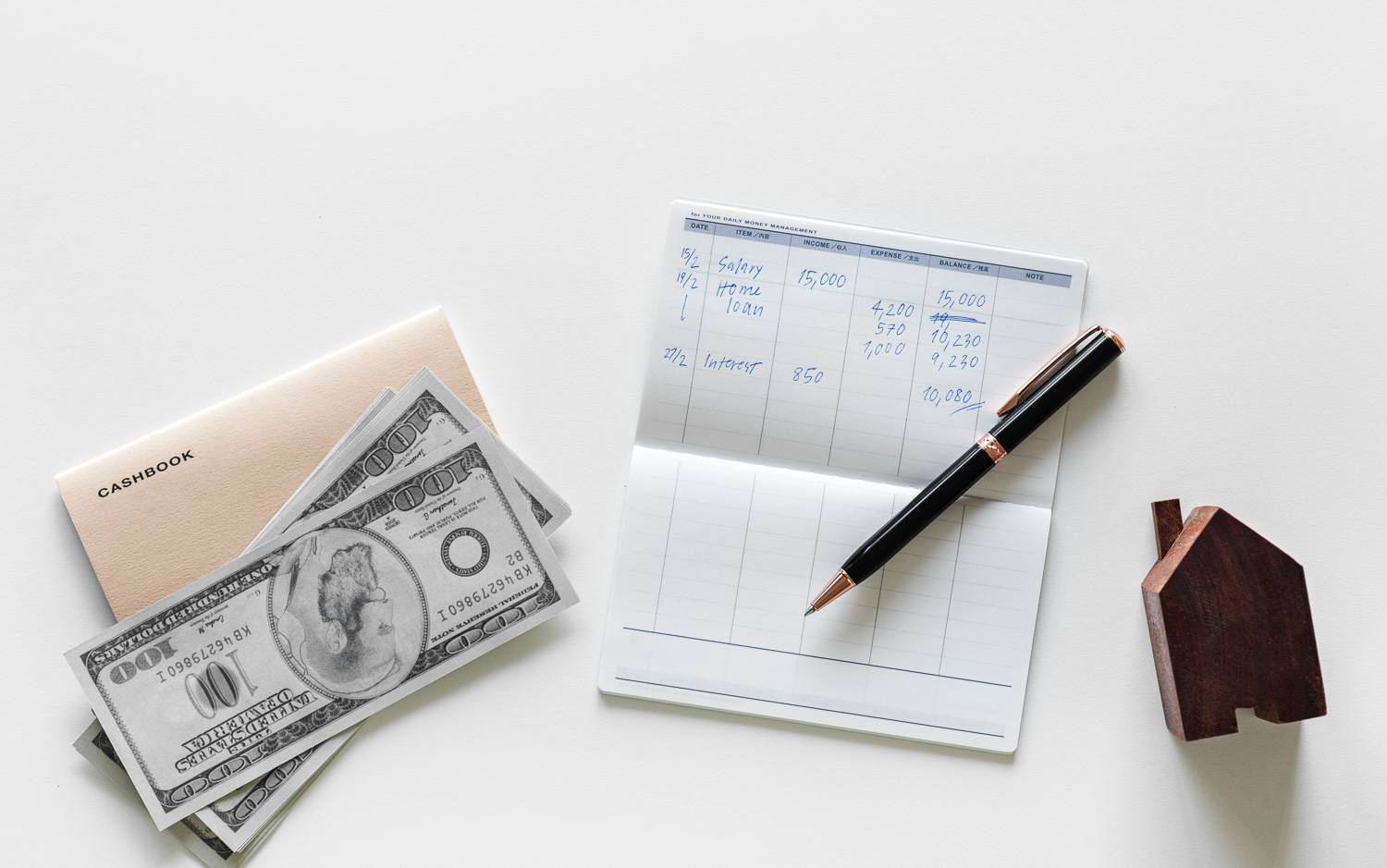
Security deposits are a necessary part of any lease, but they don’t have to be intimidating.
Security deposits—what are they, exactly? How do you get yours back? Can you argue a deduction to your security deposit?
Security deposits are an especially contentious and important part of the rental market, so both parties on a lease want to make sure they’re handled correctly. As of 2025, NYC rental laws have evolved significantly. This updated guide will help you navigate the current regulations and protect your rights.
At New York Habitat, we understand that renting in NYC comes with unique challenges. Our comprehensive guides and expert team help you navigate common rental situations effectively. Whether you’re seeking a furnished apartment or dealing with security deposit matters, we provide the resources and support you need to rent with confidence.
Understanding the security deposit- So, what is it?

Reading your lease carefully is an integral part of being a smart renter.
So you’ve finally closed in on the perfect apartment—congratulations! However, if it’s your first time renting in New York, it’s important to know that the price you see on the listing is not necessarily what you will pay up front. To secure your ideal apartment, you’ll need to pay a security deposit to the landlord.
Under current NYC law, a security deposit is a required payment, capped at one month’s rent—it ensures that you, the tenant, are committed to the apartment. It also provides security for the landlord (that’s where the name comes from! A security deposit is used to protect the landlord’s property from damage or to cover any unpaid bills, but you can look at it as a renter’s protection as well. In the supercompetitive New York rental market, a security deposit is also used to “lock in” your commitment to the apartment as a tenant. As of 2025, landlords must hold deposits in interest-bearing accounts and return them within 14 days of move-out.
Moving into NYC with pets? While landlords can establish pet policies, they cannot increase your security deposit based on pet ownership – similar to protections for families with children. However, they may charge separate, non-refundable pet fees, which must be clearly outlined in your lease agreement. Be sure to review these petrelated fees before signing.
Looking for pet-friendly apartments in NYC? Check out our guide to renting with pets.
Here are some fast facts about security deposits:
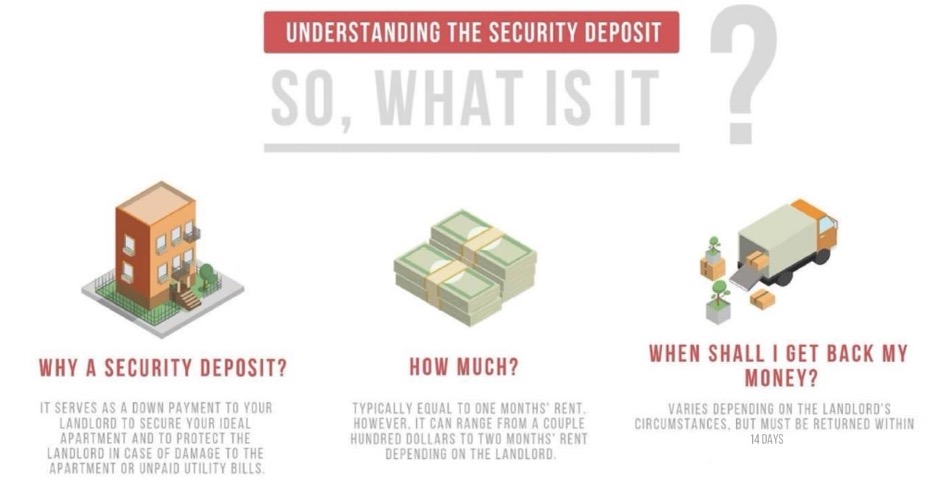
At a glance, here are 3 important things to know about security deposits.
You can also find more information about the limits of security deposits here with Nolo’s legal guide and the Residential Tenants’ Rights Guide by the New York State Attorney General’s Office.
Simple enough, right? Now that you know what a security deposit is, it’s important to understand how yours will work.
“Was that in the lease?” How to read a rental agreement
The security deposit and the rental agreement go hand-in-hand. When a tenant agrees to rent an apartment, both the owner and tenant sign a contract that provides a set of rules for the duration of the renter’s time in the apartment. Under current NYC law, lease agreements must explicitly state your rights regarding security deposits, including inspection and return timeframes The rental agreement (or lease) is a legally binding contract that outlines the responsibilities and expectations of the owner, the renter, and the accommodation.
When you rent with New York Habitat, you’ll have the added security of an extra set of eyes to review the rental agreement with you and be there to answer any questions you may have. Be sure to ask questions on anything you’re confused about! Your agent, who has already helped you secure the right apartment for your needs and budget, will be happy to answer them.
When you know what to look for, there’s no need to worry! Here are some important tips to follow to help you read your rental agreement like a pro:
Read your rental agreement carefully. Ask questions if anything is unclear and don’t sign until you’re satisfied with all terms. Understand that landlords can deduct from security deposits for unpaid bills, cleaning, or damages with proper documentation. After signing and paying, follow lease guidelines and maintain open communication for a smooth rental experience.
Residential Security Deposit Withholding: Understanding Tenant Misuse
When can landlords legitimately withhold security deposits for property misuse? This depends on clear evidence of unauthorized use that either damages the property, increases liability risks, or violates zoning laws.
Common examples of residential misuse include:
- Unauthorized Commercial Use: Operating businesses, hosting clients, or manufacturing products without proper permits and approval.
- Occupancy Violations: Exceeding permitted resident numbers or creating unauthorized subletting arrangements.
- Unauthorized Modifications: Making structural changes or installing equipment that alters the residential nature of the space.
- Environmental Impact: Creating excessive noise, traffic, or disturbances that violate residential guidelines.
To justify security deposit withholding, landlords must:
- Document all evidence of misuse
- Review local laws and lease terms
- Provide detailed itemization of charges
- Demonstrate actual property damage or increased wear
Without concrete proof of these activities, withholding the security deposit alone may not hold up legally. Landlords should always ensure compliance with local regulations before making deductions.
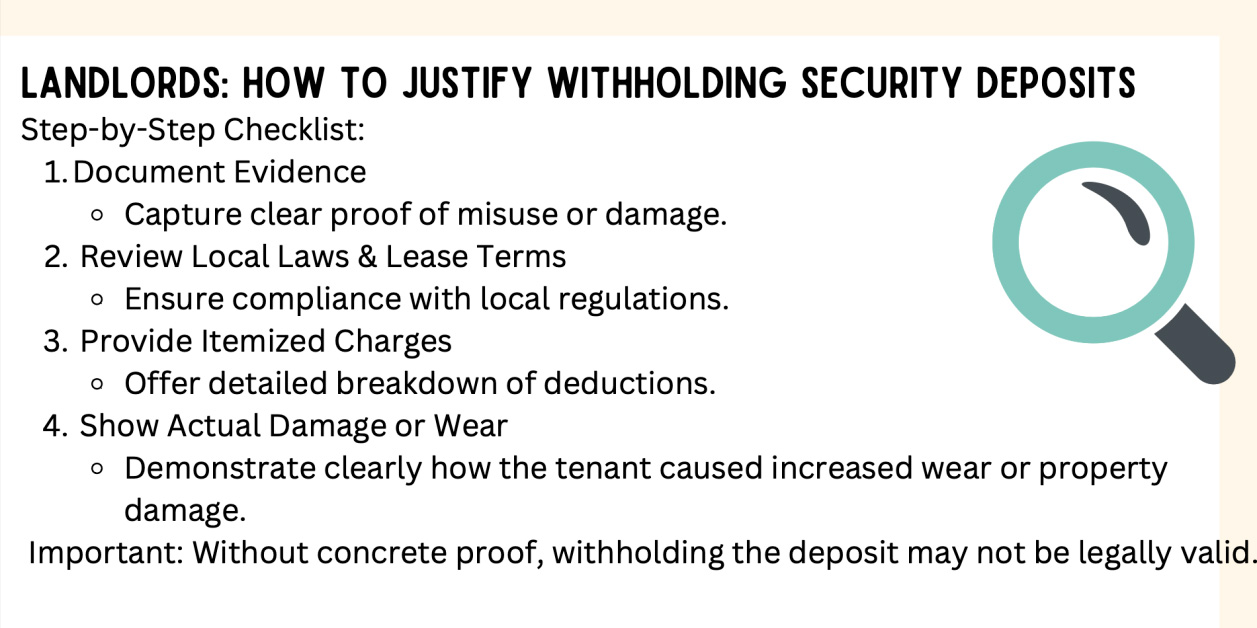
Landlords: How to justify withholding security deposits
Tips for tenants: How to be a smart renter

It’s good to ask questions during the signing process. Your New York Habitat agent can help clarify things for you.
Protecting your security deposit doesn’t have to be hard! There are a series of easy steps you can take to be a smart, proactive, and respectful tenant. Follow our agent tips for the best results for your security deposit, and both you and your landlord can expect to be happy when it’s time to move out.
- Be careful and respectful with the apartment and the property! Remember, even though it may become your home for a few months, you are still living in someone else’s space. Treat it how you would like your property to be treated.
- Try to spot accidents before they happen to avoid accidental damage.
- One way you can do this is by using kitchen safety. Keep an eye on food while it’s cooking or baking, practice knife safety, use a hot plate or cutting board to protect countertops, etc.
- You should also avoid behaviors that may leave marks or stains. Don’t use unsafe adhesive for wall hangings, and avoid eating outside designated dining areas.
- If accidental damage happens, let the owner know as soon as possible. Communication is key!
- Clean up after yourself. Leaving the apartment clean helps avoid cleaning charges and set-in stain damage.
- Pay your rent on time and make sure all outstanding charges are paid upon move-out. Communicate with the owner or get in touch with your New York Habitat agent if there are any issues with payment.
- You must pay the owner until the end of the lease term in a furnished rental, unless you work out alternate arrangements with the owner.
- In the event of a deduction from your security deposit, ask for an itemized receipt so you can understand all charges.
- Tenants and owners can and should take pictures of the property upon check-in and move-out. Having photographic proof of the apartment’s condition can help settle any security deposit disputes quickly and easily.
- You have the right to request a pre-moveout inspection 1-2 weeks before lease end.
- Document all communication regarding your security deposit.
- Keep proof of the property’s condition at move-in and move-out.
- Follow the building’s smoking policy. If smoking is prohibited, comply to avoid fines, disputes, or security deposit deductions. Smoke damage lingers, so use designated areas if needed. For detailed information on NYC smoking regulations, refer to the Smoke-Free Air Act.
- Understand Late Fee Regulations in New York: landlords can only charge late fees after rent is five days overdue, capped at $50 or 5% of monthly rent (whichever is less). These limits apply regardless of lease terms and must be in your original agreement. Set payment reminders and communicate with your landlord about any anticipated payment issues.
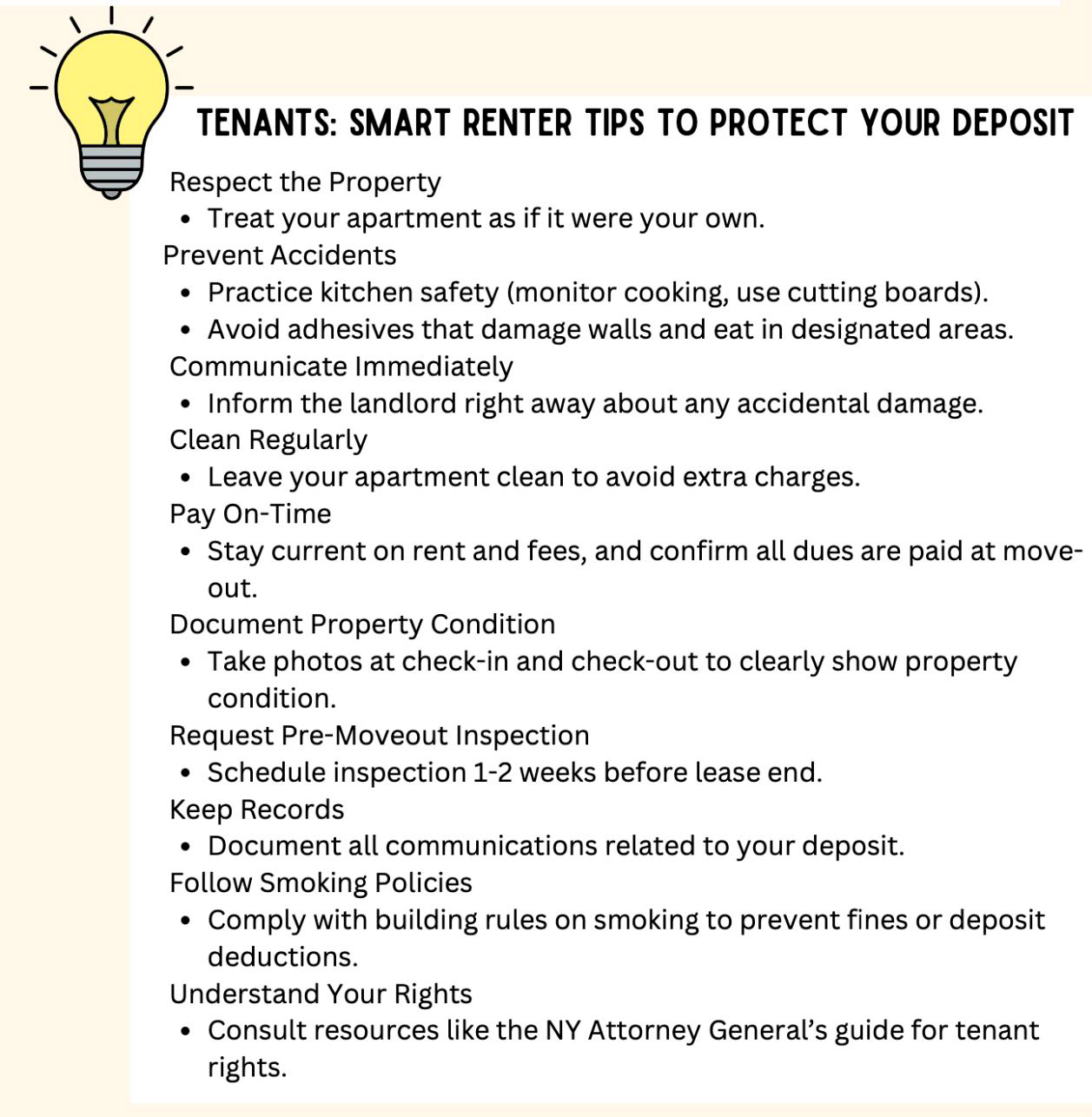
Tenants: Smart renter tips to protect your deposit
When tenants and owners do their best to be transparent, communicative, and respectful, everyone wins! If you put these simple guidelines into practice, you’re almost guaranteed to have the most positive rental experience possible. For further reading about your rights as a tenant, consult this guide by New York State Attorney General Letitia James.
New York Habitat is here to help!
Of course, a security deposit is a pretty large sum of money, and when there’s a lot at risk, disagreements can happen. Fortunately, whether you’re a tenant or an owner, you won’t have to face any difficulties alone when you rent through New York Habitat. As an agency with 30 years of experience in the New York rental market, we are trained to navigate any security deposit issues that may arise by helping you make sense of local rental laws and helping you to understand the framework of any security deposit dispute. Here’s how:
If you disagree with any of the owner’s deductions, you have the option of opening a case with the Small Claims Court of NYC. Opening a case with the Small Claims Court is an easy procedure that does not require access to a lawyer, and fees are nominal (around $30). Under current law, if a landlord fails to return the deposit within 14
days with an itemized statement, they forfeit the right to keep any portion of the deposit.
Call-to-action: We’re here for you every step of the way – whether you need assistance during your stay or have questions about your security deposit, your dedicated New York Habitat agent and our Quality Assurance team are just a message away.
Ready to find your ideal NYC home? From students and professionals to travelers seeking an authentic New York experience, New York Habitat has the perfect rental waiting for you. Take the first step toward your Manhattan adventure – explore our New York City curated selection of apartments and let our experienced team guide you to your perfect match. Browse our listings today and discover why thousands of residents trust New York Habitat.
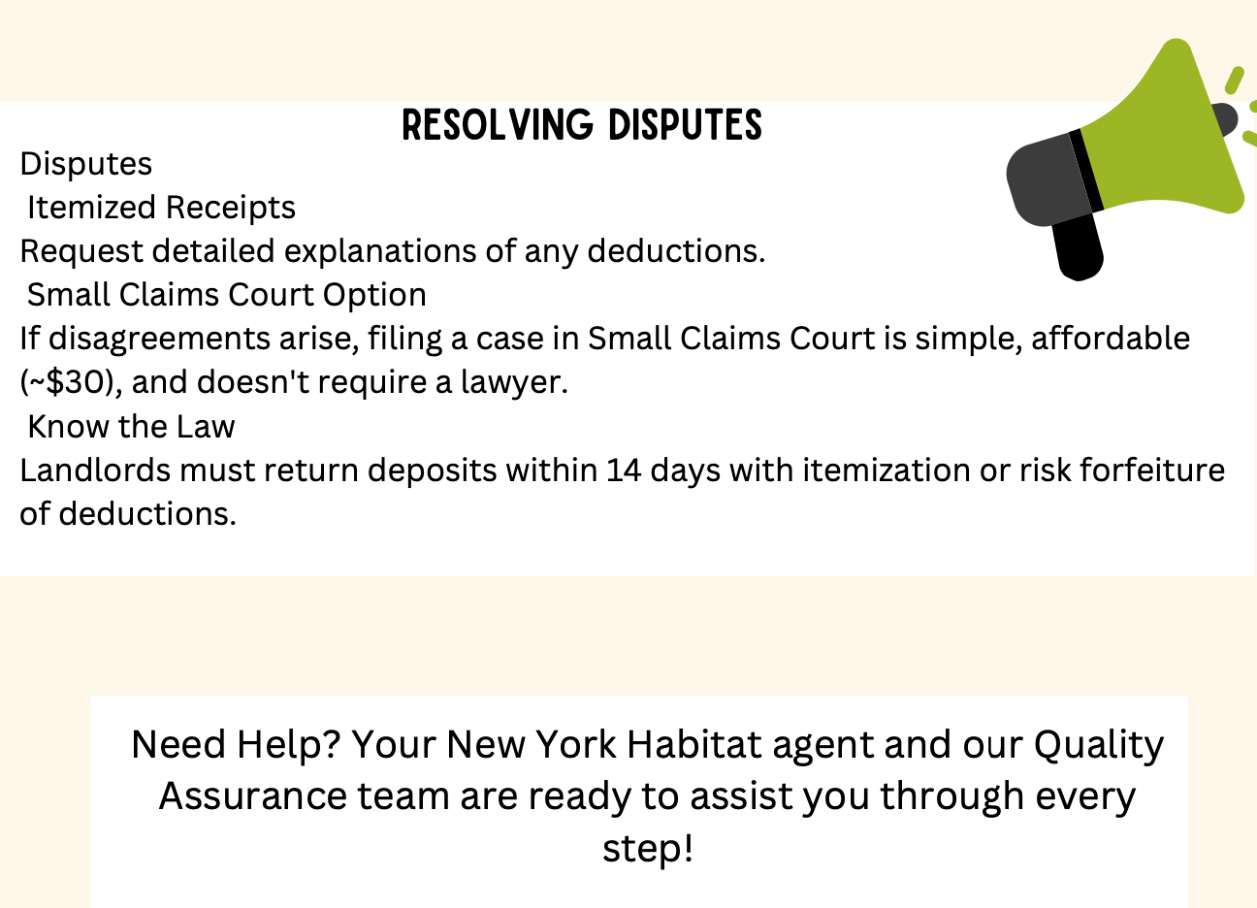
.
.

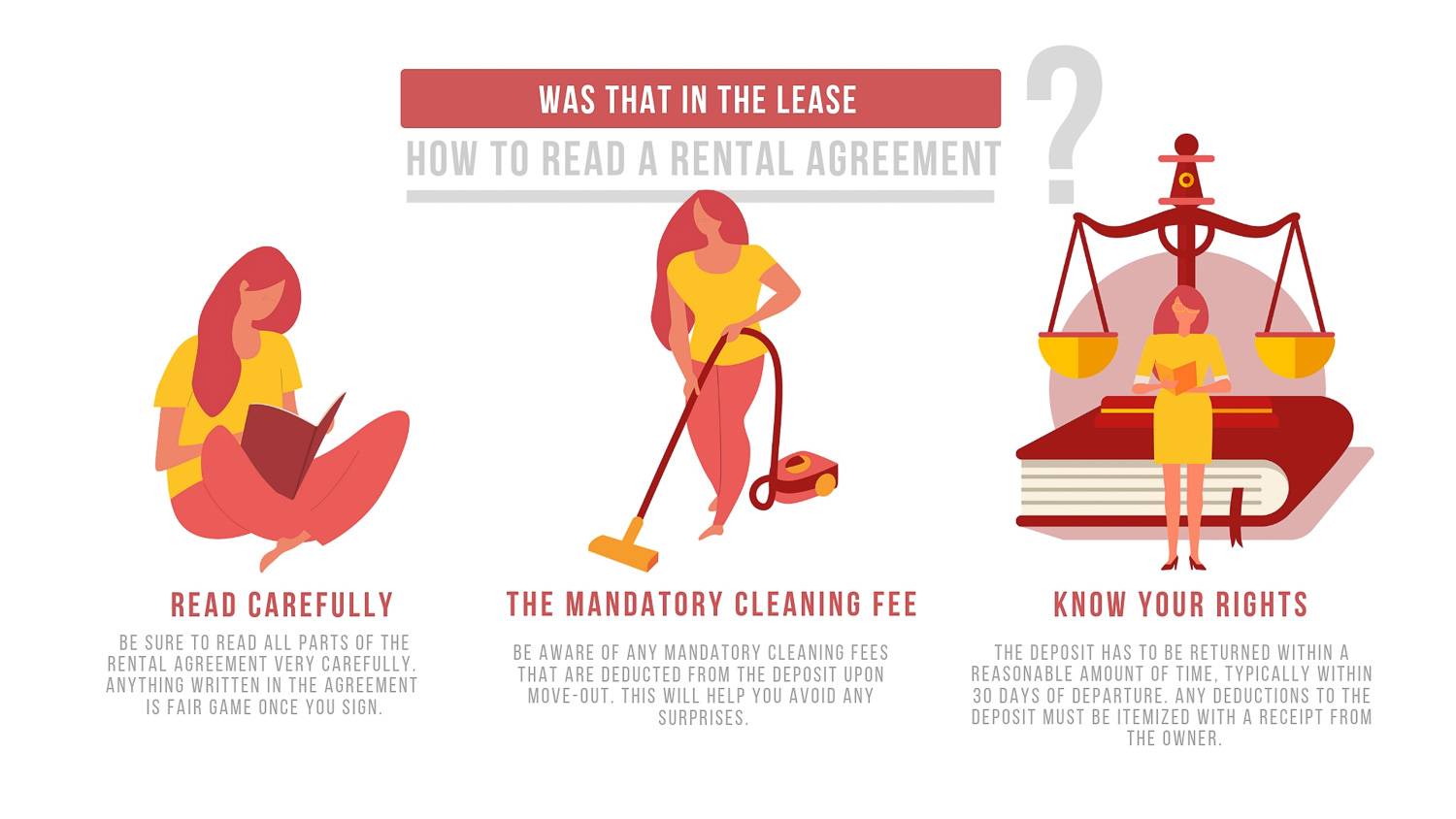

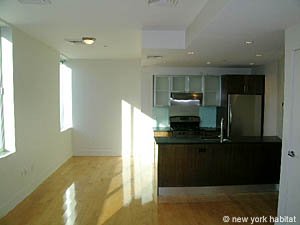



Leave a Reply